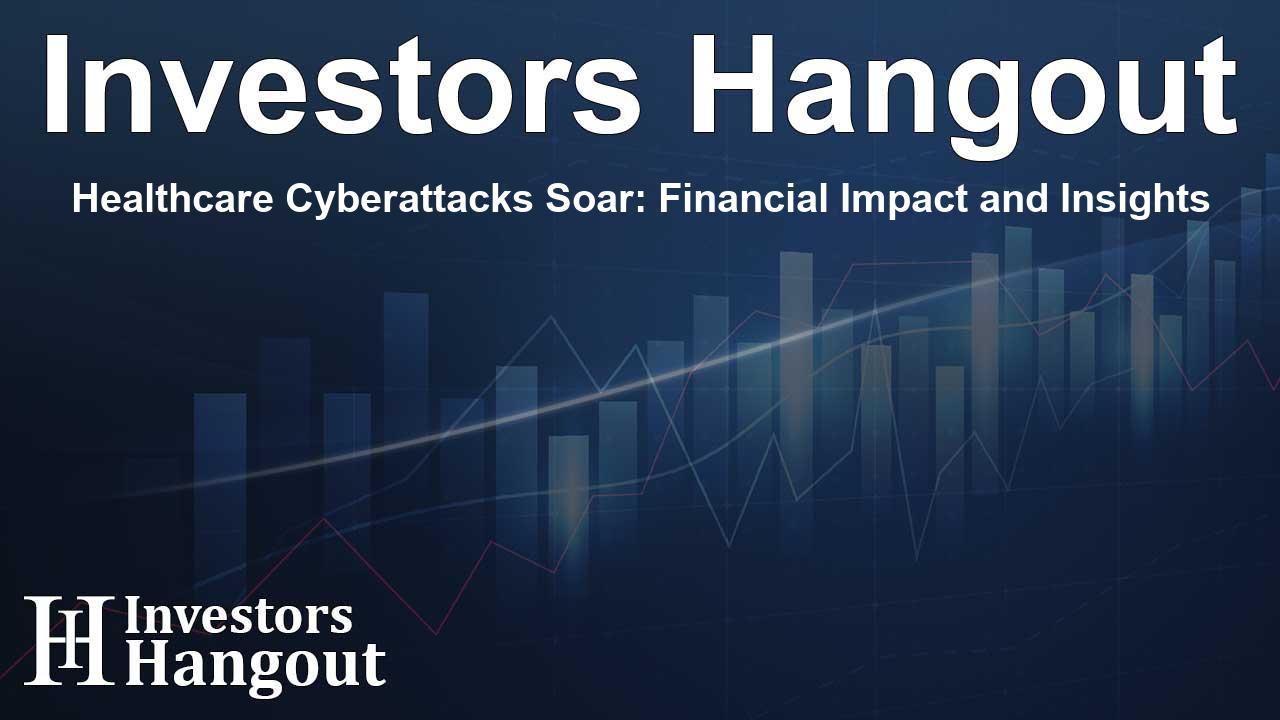Healthcare Cyberattacks Soar: Financial Impact and Insights

Healthcare Cyberattack Financial Impact on Organizations
Recent findings reveal a troubling increase in cyberattack-related losses affecting healthcare organizations. As technology continues to evolve, so do the threats that accompany it. AI is rapidly accelerating identity-based attacks, leading to devastating financial consequences across the healthcare industry.
Cybersecurity Incidents Escalating
In a comprehensive survey, it was identified that nearly half of healthcare organizations faced at least one cybersecurity incident in the previous year. The alarming statistics show that the proportion of healthcare respondents who reported losses over $200,000 surged from 5% to 19%. Additionally, losses over $500,000 saw a similar spike, jumping from 2% to 12%. These figures starkly contrast with other sectors, where only 13% reported losses exceeding the $200,000 mark.
The Rising Threat Landscape
According to Grady Summers, CEO of Netwrix, the healthcare sector is disproportionately affected. The high value of patient records and the critical nature of healthcare operations make this sector a prime target for attackers. Many of these attacks initiate via compromised credentials, emphasizing the importance of robust identity protection protocols.
Common Attack Vectors in Healthcare
Phishing incidents, ransomware attacks, and compromises of user accounts rank among the most prevalent forms of cyber threats faced by healthcare institutions. A considerable portion of the respondents—31%—revealed having experienced incidents tied to compromised user or administrative accounts, underscoring that most threats stem from the theft of login credentials.
The Role of AI in Cybersecurity
For the first time this year, the survey explored the impact of AI on cybersecurity. A noteworthy 37% of IT and security professionals acknowledged that AI-driven threats compelled them to bolster their defensive measures. This revelation illustrates how swiftly adversaries are leveraging AI to enhance their phishing tactics and compromise privileged accounts.
Defending Against Evolving Threats
Despite increased investments in cybersecurity defenses, the findings suggest that attackers—particularly those harnessing AI—are advancing at a pace that often outstrips defenders' ability to adapt. Jeff Warren, Chief Product Officer at Netwrix, emphasized the necessity of adopting a proactive identity-first approach. Such a strategy must safeguard both user accounts and the sensitive data they access.
Understanding the 2025 Cybersecurity Trends Report
The insights shared are part of the extensive Netwrix 2025 Cybersecurity Trends Report, which draws on a global survey of 2,150 IT and security professionals spanning 121 countries. This in-depth analysis sheds light on pertinent trends shaping the cybersecurity landscape.
Company Overview
Netwrix is at the forefront of redefining data security, advocating that data security and identity security must function in tandem. Their innovative Netwrix 1Secure platform equips security teams with essential visibility into who accesses sensitive data, empowering them to strengthen data protection frameworks and stay a step ahead of emerging threats. With a diverse array of solutions, Netwrix serves over 13,500 organizations across the globe, offering tools that streamline the investigation and remediation of threats.
Frequently Asked Questions
1. What were the key findings of the Netwrix cybersecurity survey?
The survey revealed that nearly 48% of healthcare organizations experienced a cybersecurity incident last year, with significant increases in reported losses over $200,000 and $500,000.
2. Why is the healthcare sector more vulnerable to cyberattacks?
The healthcare sector is targeted more than others due to the high value of patient records and the critical nature of its operations which are susceptible to disruption.
3. How does AI impact cybersecurity in healthcare?
AI is increasingly being utilized by attackers, leading to more sophisticated phishing attempts and privileged account compromises, prompting organizations to reinforce their defenses.
4. What common attack types do healthcare organizations face?
Phishing, ransomware, and compromised user accounts are among the most common attack vectors reported by healthcare organizations.
5. What is Netwrix's role in cybersecurity?
Netwrix provides solutions that enhance visibility into data and identity security, enabling organizations to safeguard sensitive information effectively and respond to threats proactively.
About The Author
Contact Henry Turner privately here. Or send an email with ATTN: Henry Turner as the subject to contact@investorshangout.com.
About Investors Hangout
Investors Hangout is a leading online stock forum for financial discussion and learning, offering a wide range of free tools and resources. It draws in traders of all levels, who exchange market knowledge, investigate trading tactics, and keep an eye on industry developments in real time. Featuring financial articles, stock message boards, quotes, charts, company profiles, and live news updates. Through cooperative learning and a wealth of informational resources, it helps users from novices creating their first portfolios to experts honing their techniques. Join Investors Hangout today: https://investorshangout.com/
The content of this article is based on factual, publicly available information and does not represent legal, financial, or investment advice. Investors Hangout does not offer financial advice, and the author is not a licensed financial advisor. Consult a qualified advisor before making any financial or investment decisions based on this article. This article should not be considered advice to purchase, sell, or hold any securities or other investments. If any of the material provided here is inaccurate, please contact us for corrections.
